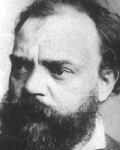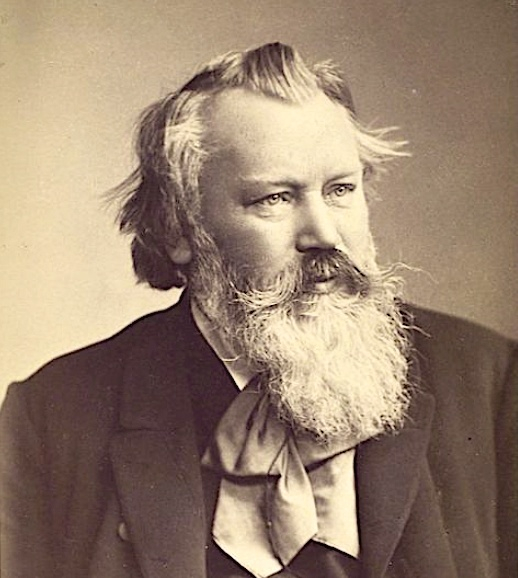

Antonin Leopold Dvorak(Dvořák)
Born: 1841Died: 1904
Education: Dvořák graduated from the Organ School in 1859
Career: A professor at the Prague Conservatory, the director of the National Conservatory of Music of America
Antonín Dvořák (1841–1904) was a Czech composer of Romantic music, who employed the idioms of the folk music of Moravia and his native Bohemia. Dvořák's most well known work is his Symphony No.9, 'From the New World'. Antonin Dvorak was born the eldest of eight children in a small village north of Prague. Folk music accompanied every occasion, and Dvorak soon joined his father in the local band. He studied organ, violin, piano and, less successfully, German. In 1871, still with none of his music publicly performed or published, he left the orchestra to concentrate on composing, scratching a living by giving piano lessons. Antonin and Anna were wed on 17 November 1873 and enjoyed a long and fruitful marriage. In 1877, on recommendation by Brahms, the publisher Simrock commissioned Dvorak to write some Slavonic Dances for piano duet, aimed at the lucrative domestic market. Dvorak fast became an international celebrity, in some places almost overnight. In Berlin the sheet music sold out in one day. In 1891 Dvorak got an offer from Mrs Jeannette Thurber, the wife of a millionaire businessman, who wanted him as Director of the New Conservatory of Music in New York. For a little teaching and conducting, with four month's vacation, he would receive the unimaginable salary of $15, 000 - 25 times what he was paid in Prague, and worth about £500,000 in today's terms. The Dvoraks sailed to New York in autumn 1892, and their time in America produced three of his most famous works, the String Quartet No.12, 'American', the Cello Concerto in B minor; and the 'New World' Symphony. The last years of his life, Dvorak was content. He composed some short orchestral works and wrote his operatic masterpiece, Rusalka. When he died of a heart attack after a short illness, he was mourned as a national hero, and his music has remained popular ever since. As composer; Dvořák was studying the works of his masters in detail, while at the same time already composing his own music. He probably wrote many works during this period, none of which were performed. He was extremely self-critical and destroyed most of his scores. His first work, which he thought enough of to assign an Opus number to, thus officially launching his career as a composer, was the String Quintet in A minor from 1861 (Dvořák was 19 at the time). This was followed by the String Quartet in A major, Op. 2. Soon after, he ventured into major musical forms, composing his Symphony No. 1 in C minor, subtitled "The Bells of Zlonice", and then immediately began writing the extensive Symphony No. 1. He completed his B flat major No. 2 in just two months. Meanwhile, he also wrote the Cello Concerto in A major for his colleagues in the orchestra. All this took place in cramped conditions, living in a rented room he shared with several other lodgers. Dvořák's participation in the Temporary Theater Orchestra provided him with numerous opportunities to perform a variety of world opera works, providing him with a wealth of inspiration and still isolated examples of Czech opera. He is also used to compose symphonic works and operas. As a completely unknown composer, he could not afford to commission a new libretto, so he used an earlier text, Alfred der Grosse, written by the German neo-Romantic poet Karl Theodor Körner. Dvořák's first opera, Alfred, was never performed during his lifetime. He soon began work on his second opera, King and Collier, which, upon its completion, was offered to a temporary theatre. However, after several rehearsals the score was returned to him as unplayable and in response Dvořák rewrote the entire opera to the same text. A second musical background now seemed feasible, and Dvořák was able to present himself to the public for the first time as an opera composer. But the decisive factor that solidified the composer's reputation in his homeland was the remarkable success of the performance in March 1873 of the hymn “Heir of the White Mountains” composed by Vítězslav Hálek. With this work, the violist, hitherto anonymous in the Temporary Theater Orchestra, established himself as a promising and original composer, and its success encouraged him to continue composing. Encouraged by enthusiastic reviews of the hymns, he sequentially released Symphonies No. 3 in E-flat major, No. 4 in D minor, three string quartets, a one-act comic opera, The Stubborn Lovers, and numerous other works. Some of the other pieces have not survived.

